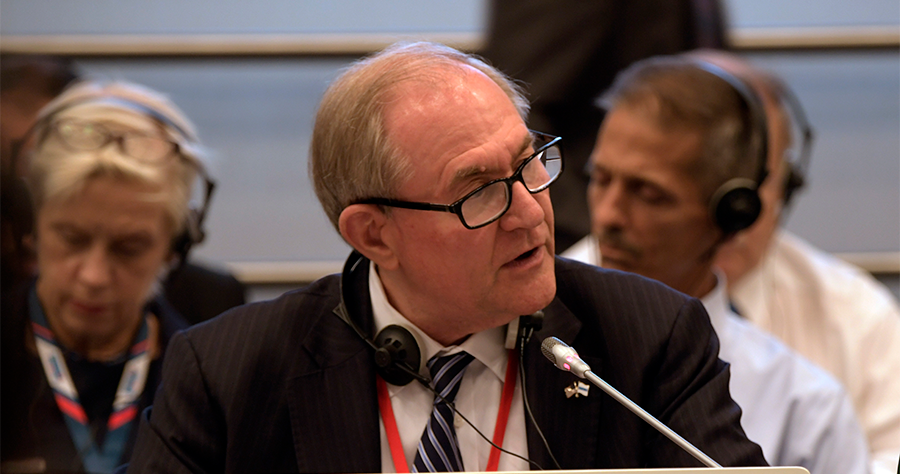US diplomat calls for concrete measures to solve Karabakh conflict

By Trend
The US attaches great importance to the work of the OSCE Minsk Group and expresses a commitment to an ultimate resolution to the Armenia-Azerbaijan Nagorno-Karabakh conflict, Trend reports referring to US ambassador to the OSCE Permanent Council James S. Gilmore.
Gilmore made the remark in Vienna at the meeting of the OSCE Permanent Council.
“We are concerned about casualties on the line of contact in recent months,” the ambassador said. “These casualties illustrate the continuing human cost of the conflict. They increase distrust and animosity, diminishing prospects for a lasting settlement.”
“At the same time, we are encouraged by the constructive high-level contacts between the leaders and foreign ministers of Armenia and Azerbaijan,” Gilmore said. “This level of contact should – and can – bring direct and positive dividends. We encourage the sides to agree on concrete measures discussed throughout this year on specific humanitarian and security measures to prepare the populations for peace and reduce tensions.”
“Yet, agreement on these issues is not enough,” the ambassador said. “We call on the sides to turn these agreements into concrete actions now. The time has come for the sides to prepare their populations for peace. The US supports confidence-building measures and increased dialogue between Armenians and Azerbaijanis that can stabilize the security situation and foster a more constructive atmosphere for negotiations. Those participating in dialogue must be able to do so freely and without fear of harassment or recrimination when they return home.”
“There can be no military solution to this conflict, and the status quo is unacceptable,” Gilmore said. “The US is committed to working with the sides to find a lasting and peaceful resolution based on the principles, shared by participating states, of non-use or threat of force, territorial integrity, and equal rights and self-determination of peoples, as embraced in the Helsinki Final Act, which remains the key instruments of principles and conduct for the OSCE member states.”
The conflict between the two South Caucasus countries began in 1988 when Armenia made territorial claims against Azerbaijan. As a result of the ensuing war, Armenian armed forces occupied 20 percent of Azerbaijan, including the Nagorno-Karabakh region and seven surrounding regions.
The 1994 ceasefire agreement was followed by peace negotiations. Armenia has not yet implemented four UN Security Council resolutions on withdrawal of its armed forces from Nagorno Karabakh and the surrounding regions.
--
Follow us on Twitter @AzerNewsAz
Here we are to serve you with news right now. It does not cost much, but worth your attention.
Choose to support open, independent, quality journalism and subscribe on a monthly basis.
By subscribing to our online newspaper, you can have full digital access to all news, analysis, and much more.
You can also follow AzerNEWS on Twitter @AzerNewsAz or Facebook @AzerNewsNewspaper
Thank you!
